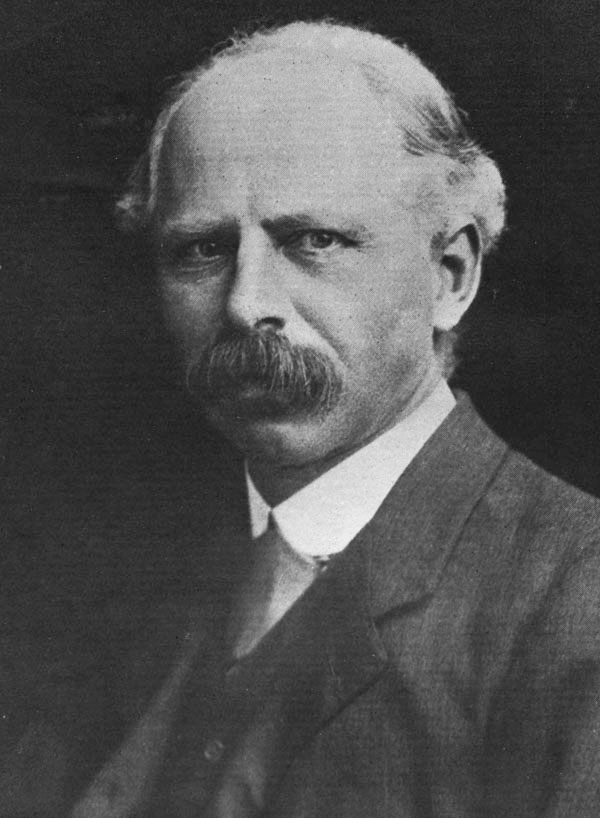“If the child was helpless, was the grown up person, man or woman, in a much better position?”
Source: Liberalism (1911), Chapter IV, "Laissez - Faire", p. 46.
Leonard Trelawny Hobhouse was a British liberal political theorist and sociologist, who has been considered one of the leading and earliest proponents of social liberalism. His works, culminating in his famous book Liberalism , occupy a seminal position within the canon of New Liberalism. He worked both as an academic and a journalist, and played a key role in the establishment of sociology as an academic discipline; in 1907 he shared, with Edward Westermarck, the distinction of being the first professor of sociology to be appointed in the United Kingdom, at the University of London. He was also the founder and first editor of The Sociological Review. His sister was Emily Hobhouse, the British welfare activist. Wikipedia

“If the child was helpless, was the grown up person, man or woman, in a much better position?”
Source: Liberalism (1911), Chapter IV, "Laissez - Faire", p. 46.
Source: Liberalism (1911), Chapter VIII, Economic Liberalism, p. 89.
Source: Liberalism (1911), Chapter IV, "Laissez - Faire", p. 50.
Source: Liberalism (1911), Chapter II, The Elements of Liberalism, p. 17.
Source: Liberalism (1911), Chapter IX, The Future Of Liberalism, p. 117.
Source: Liberalism (1911), Chapter V, Gladstone And Mill, p. 60.
Source: Liberalism (1911), Chapter IX, The Future Of Liberalism, p. 118.
Source: Liberalism (1911), Chapter I, Before Liberalism, p. 9.
Source: Liberalism (1911), Chapter III, The Movement Of Theory, p. 30.
“Great changes are not caused by ideas alone; but they are not effected without ideas.”
Source: Liberalism (1911), Chapter III, The Movement Of Theory, p. 30.
“Does scope for individual development, for example, consort with idea of equality?”
Source: Liberalism (1911), Chapter VII, The State And The Individual, p. 74 .
“The foundation of liberty is the idea of growth.”
Source: Liberalism (1911), Chapter VI, The Heart Of Liberalism, p. 66.
Source: Liberalism (1911), Chapter VI, The Heart Of Liberalism, p. 69.
Source: Liberalism (1911), Chapter V, Gladstone And Mill, p. 56 .
“We need less of the fanatics of sectarianism and more of the unifying mind.”
Source: Liberalism (1911), Chapter IX, The Future Of Liberalism, p. 126-127.
Source: Liberalism (1911), Chapter II, The Elements of Liberalism, p. 17.
“Government must keep the ring, and leave it for individuals to play the game.”
Source: Liberalism (1911), Chapter III, The Movement Of Theory, p. 34 .
“In modern industry there is very little that the individual can do by his unaided efforts.”
Source: Liberalism (1911), Chapter VIII, Economic Liberalism, p. 99.
Source: Liberalism (1911), Chapter IV, "Laissez - Faire", p. 47.
Source: Liberalism (1911), Chapter I, Before Liberalism, p. 9.
Source: Liberalism (1911), Chapter VIII, Economic Liberalism, p. 97.
Source: Liberalism (1911), Chapter VI, The Heart Of Liberalism, p. 63.
Source: Liberalism (1911), Chapter II, The Elements of Liberalism, p. 16.
Source: Liberalism (1911), Chapter III, The Movement Of Theory, p. 34.